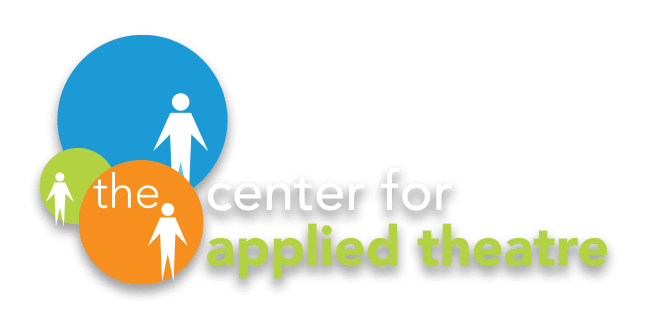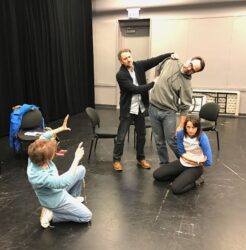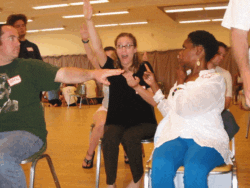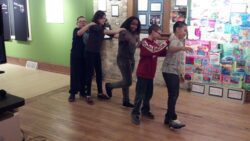Process Drama
Process Drama focuses on the action of creating a scene to explore a situation, to promote empathy, and to develop an understanding of complex situations. After learning the background of the situation, participants act out unscripted scenes and imagined exchanges from the (often historical) characters’ points of view. There is no external audience; Process Drama is meant to benefit the actors themselves. It has its roots in dramatic play, where children in every culture create their own imagined worlds. It is a group exercise in improvisation, communication, and storytelling with a single, internal audience – the participants themselves.
For example, rather than hear a lecture about colonialism and its impacts, a group of participants would act out the first contact between explorers and indigenous people. Each side would be asked to think about the lives, goals, and beliefs of people in their society, about what happened leading up to the event, and about the response to new and different ‘others’ in the moment. The performance and analysis of what was said and done opens new doors to learning and new insights into the motivations for and impact of human interaction. This often leads to the discussion of parallel situations in participants’ own lives.
Communication Studies
Communication Studies examine the processes of human communication and behavior. The focus of CAT’s work is on the patterns of communication in groups and the power dynamics they represent and support. We look as well at political, economic, and social contexts, interpersonal relationships, and communication across cultures with the goal of understanding and transforming power relations that give rise to oppression. The work explores the competing commitments one often has that inhibit transformative action and examines the ways in which a community can develop public agreements to bolster democratic relationships in order to create progressive social change.
Participatory Action Research
Participatory Action Research (PAR) is an approach to enquiry which has been used since the 1940s. It involves researchers and participants working together to understand a problematic situation and change it for the better. PAR focuses on social change that promotes democracy and challenges inequality, often targeting the needs of a particular group. It is an iterative cycle of research, action and reflection, during which participants seek a greater awareness of their situation in order to take action. PAR uses a range of different methods, both qualitative and quantitative. During CAT workshops, we seek to understand the world together using theatre techniques to ask questions, test answers, and create paths to change.



